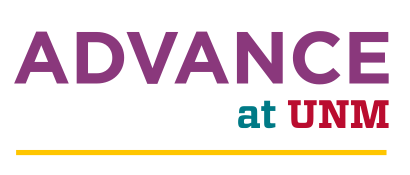Academic freedom on campus: resources and information

Ahead of the fall 2024 semester, Advance at UNM and the Office of Academic Affairs hosted a series of workshops for faculty, staff and graduate students on developing communities in academic settings and on responding to conflict and stress in the classroom. The workshops were part of an ongoing series on academic freedom and civil campus conversations.
The workshops for faculty and staff were led by Mikhail Lyubansky, a teaching associate professor in the Department of Psychology at the University of Illinois, Urbana-Champaign. Lyubansky, who teaches several restorative justice and positive psychology classes, also presented at UNM earlier this year on keeping campus conversations civil. Steph Posey, a doctoral student in the School of Information Sciences, University of Illinois, Urbana- Champaign, who is also a youth development practitioner, co-led the sessions that were for graduate students.
The series included two workshops, each of which lasted two hours and included time for interactive exercises and discussion. The workshops were:
Developing Community in Academic Settings, Aug. 12 and 13
While the traditional “banking model” of pedagogy, in which the instructor makes deposits of knowledge into students who receive, file, and store the deposits, continues to have a place in higher education, the easy availability of information and the emergence of generative AI make critical thinking, problem-solving, perspective-taking, and adaptation to different contexts increasingly essential. At the same time, the political polarization and culture wars make classroom dialogue, collaborative learning, and even self-reflection assignments more fraught than ever for both students and instructors. The purpose of this workshop is to examine the potential benefits of dialogue and collaboration in the classroom and the various strategies for building the sense of community that makes such activities possible. Consistent with the philosophy and goals of community building, the workshop will include a variety of interactive exercises.
When Things Go Wrong: Responding Effectively In the Moment to Classroom Conflict and Stressful Situations, Aug. 14 and 15
Despite our best efforts to anticipate and minimize classroom conflicts and stressful situations in the classroom, not everything is preventable. The purpose of this workshop is to examine our own tendencies during moments of stress and conflict and discuss strategies for responding effectively in the moment to the different things that can go wrong. Among other issues (which we’ll gather from those present), we’ll discuss student expressions of mental health symptoms, escalation of tension between students during class discussion, and hostility towards the instructor. Participants will be provided with information on UNM support resources as part of this session.
Handouts from the workshops:
List of feelings when you are satisfied and not satisfied
Pictorial measure of closeness
Restorative Justice: Principles and Methods Class Guidelines
180 Circle Questions for Building Community
When Things Go Wrong (Questions to Guide Decision Making)
Adult Restorative Self Reflection Sheet
Sample class guidelines that use a restorative justice approach
Mikhail Lyubansky
 Mikhail Lyubansky, Ph.D., is a teaching associate professor in the Department of Psychology at the University of Illinois, Urbana-Champaign, where he teaches several restorative justice classes and Positive Psychology.
Mikhail Lyubansky, Ph.D., is a teaching associate professor in the Department of Psychology at the University of Illinois, Urbana-Champaign, where he teaches several restorative justice classes and Positive Psychology.
Interested in the restorative and transformative justice movements, Mikhail’s primary influence has been Restorative Circles, a practice that originated in the favelas of Brazil. Since 2009, his work has focused on supporting school districts, college campuses, and youth justice systems in developing structures for restorative conflict engagement through consultation, workshops, and the facilitation of high-stakes conflicts.
Well-known in the Restorative Justice field, he has been an invited presenter across the United States and internationally, including Ukraine, Ireland, and Hong Kong.
Steph Posey

Steph Posey is a doctoral student in the School of Information Sciences, University of Illinois, Urbana- Champaign and a youth development practitioner from Chicago.
Her research interests include Black Queer Feminist Thought and Radical Imagination. She studies intergenerational movement building and the online information ecologies of Black Liberation Movements. She is soon proposing her dissertation research on the #NoCopAcademy campaign and coalition in Chicago, which started to halt the building of a $95 million police and fire fighter training center.
Posey attended public school her full academic career and recognizes the need for widely accessible intergenerational public spaces of learning and intellectual exploration.
Past academic freedom event information
Learn about the Academic Freedom and Tenure Committee at UNM
Do you know how the Academic Freedom and Tenure Committee at UNM works? In this video, you’ll hear from Sever Bordeianu, chairman of the committee, as he explains the committee’s role, procedures and more.
Bordeianu mentions several policies at UNM related to free speech.
They are:
UNM academic freedom and free speech resources
We’ve compiled some resources you need to know about academic freedom, free speech and creating civil and constructive dialogues in your classroom. Know of a resource we should add? Email advance at unm dot edu.





